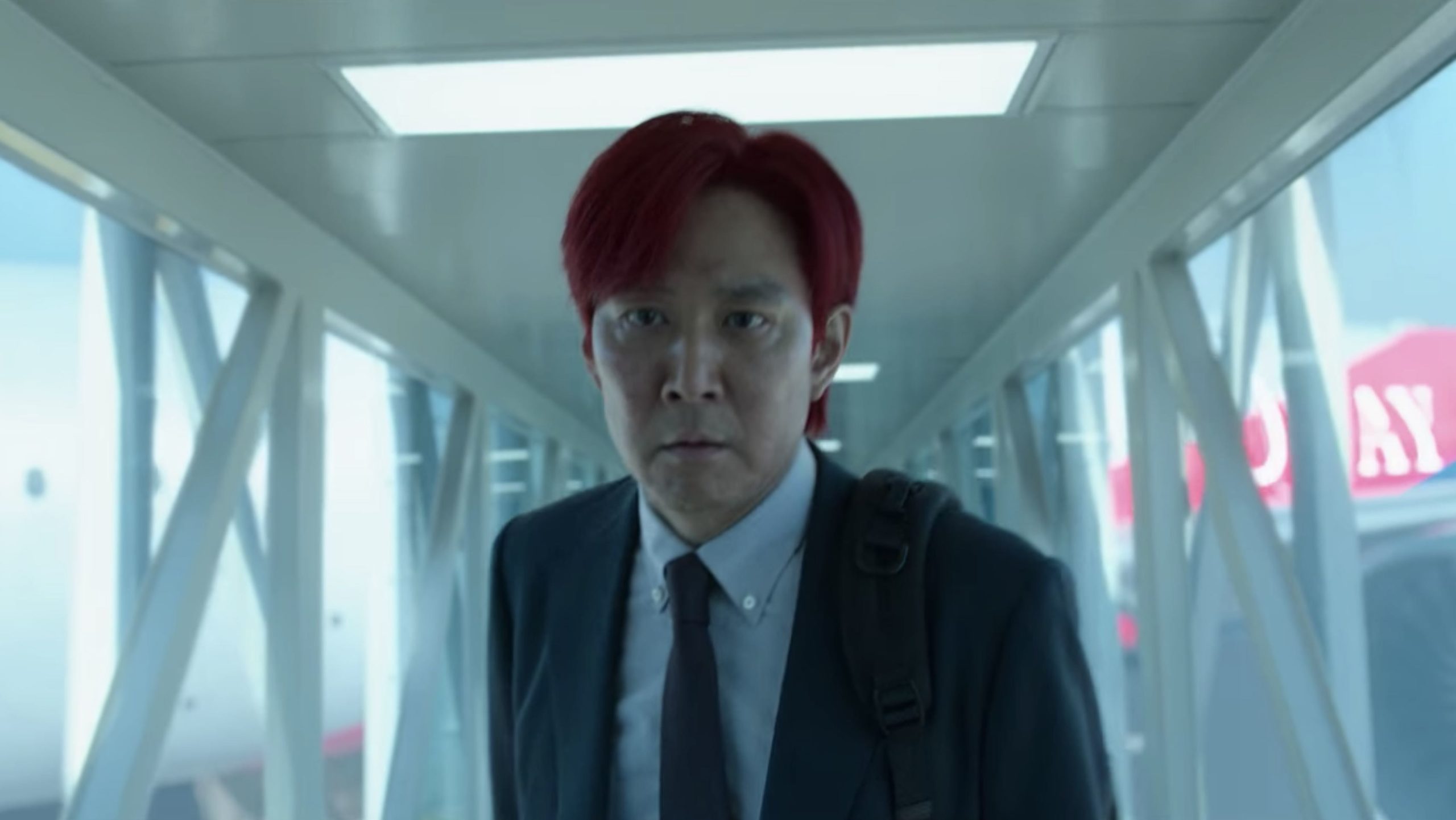5 Twisted Insights About Human Nature From ‘Squid Game’
Detailed Character Analysis | This article explores the philosophy and observations about human nature from the popular Netflix series Squid Game.
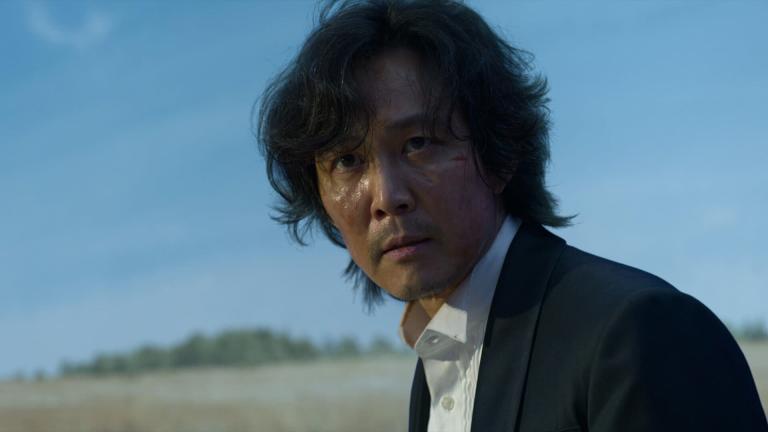
Warning: Article contains massive spoilers.
Hwang Dong-hyuk’s Squid Game is a masterpiece of the survival horror genre because it darkly and coolly examines human nature from a variety of perspectives and personality types. Here we’ll examine five of the major characters and what they reveal about humanity and our collective nature. Spoiler alert for anyone who hasn’t finished the series yet.
1. Ignorance is bliss, and humans will go to great lengths to avoid the truth of their situation.
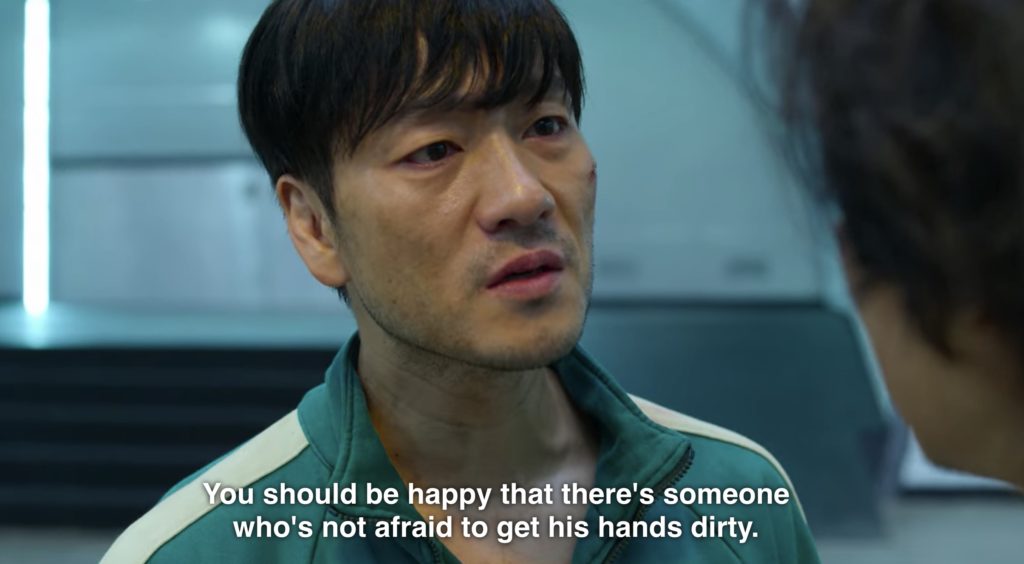
Character: Cho Sang-Woo
Cho Sang-Woo is a suspicious character. He lacks compassion and doesn’t seem to have a moral compass. This is clear during the honeycomb game when, like a sociopath, he lies to his teammates and lets his old friend Seong Gi-hun pick the umbrella. Further, Sang-woo’s betrayal of Abdul Ali in the marbles game is utterly disgusting and cements him as a truly despicable and evil character.
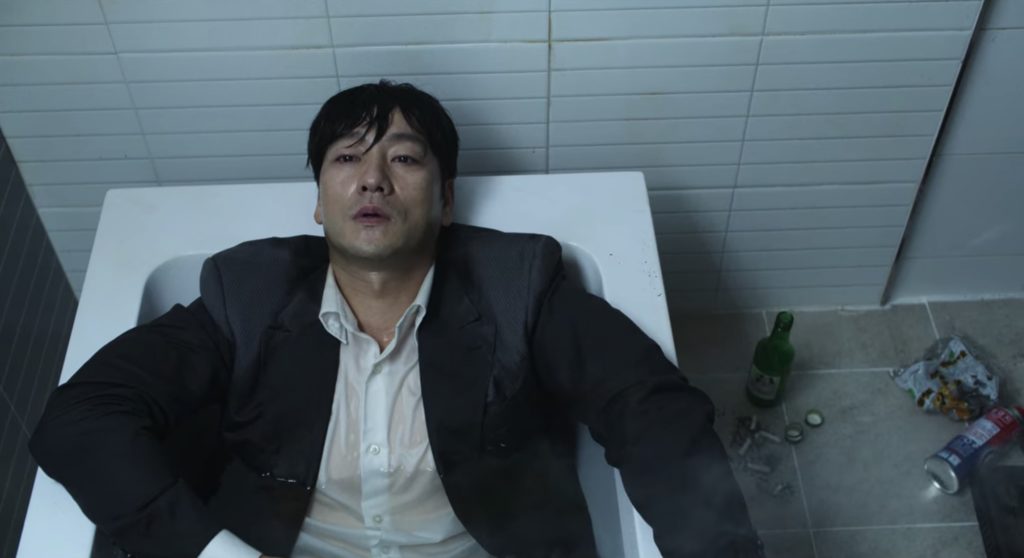
But on deeper analysis, Sang-Woo is one of the heroes of Squid Game because he’s one of the few characters who is conscious of his moral failures. Yes — this is controversial but true, and here’s why.
He is the only one who gets what is going on and accepts it. Sang-woo is one of the only characters who understands he is playing a zero-sum game. While the rest of his team members engage in a mass delusion that they will be able to remain a team, Sang-woo is the only one who accepts from the start that everyone except the winner will die. At first blush, this is offensive, but on further thought, the naivety and blind eye his other teammates apply to the game are also offensive. By willfully playing this game, you’re engaging in murder, and Sang-Woo is one of the few characters who can stomach this fact and accept the responsibility of what they are all doing. Put simply, the ignorance of the other characters might be heartwarming as a plot device, but it doesn’t make them any less guilty for all the death and violence going on around them. Sang-woo at least has the self-respect to admit to himself that this is a moral failure.
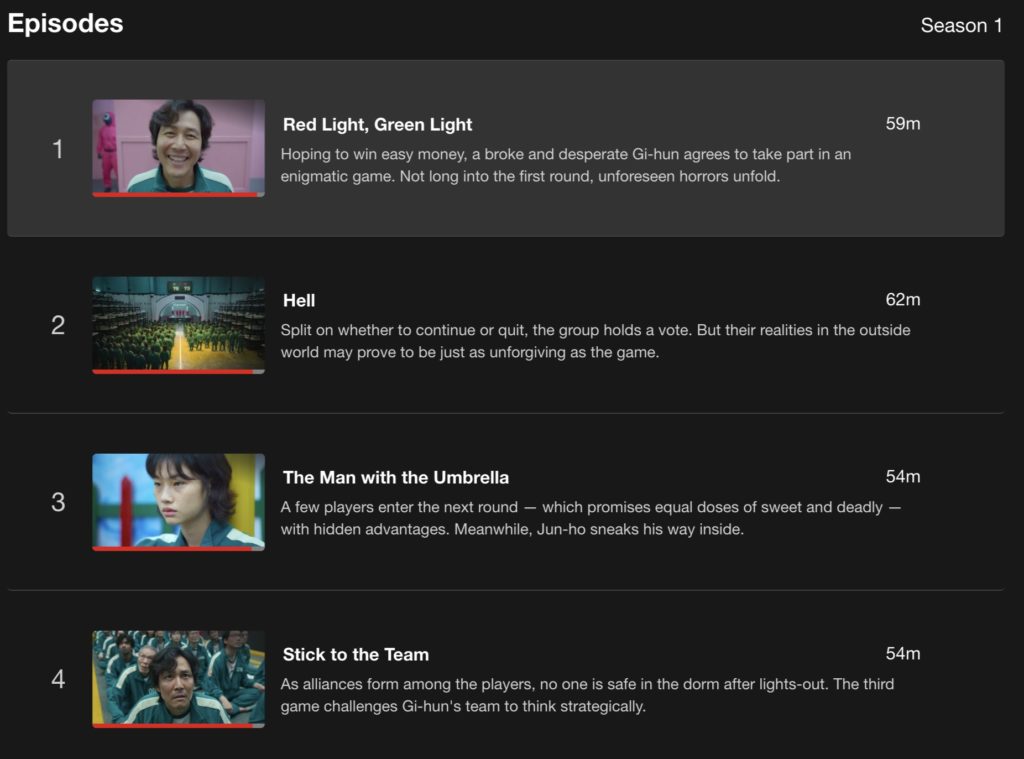
He is capable of utilitarian decisions, and without his practical mind, Jang Deok-su could have won the game. Or at the very least, without him, the more likable characters would have had no chance of winning. The most explicit instance of this is in the glass stepping stones game. Sang-Woo chooses to murder someone, something Seong Gi-hun and many of the other characters would never do — at least explicitly. Yet it’s a double bind. If he did not make a decision, the same number of people would still die. If he froze up, made no decision like Gi-hun when he was paralyzed picking a number, and died instead of murdering someone, would that have been morally better? Perhaps from a spiritual or Kantian perspective, but from a utilitarian vantage point, he made a logical decision.
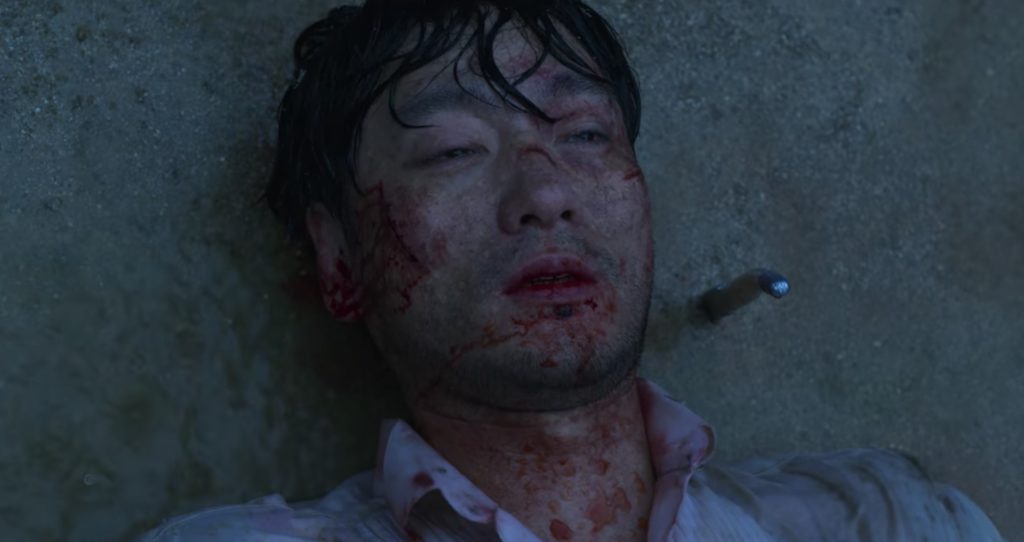
Sang-Woo’s suicide attests to his higher principle. The thought experiment Squid Game asks of us is: Who are you on your worst day? What is humanity on its worst day? Remember that the second episode where all the contestants vote to leave the game and venture out into the real world is called “Hell,” and the implication is clear. The real world for these contestants is worse than the games, because while they’re as good as dead in the real world, at least they have a chance in the game. So the show reflects a variety of characters who have hit rock-bottom and then are put into impossible situations. When Sang-Woo kills himself, he is applying the same utilitarian analysis he applied when he killed other players. He shows that throughout, he was one of the few players who understood the game and applied its principles equally to other players and then himself.
This is not to say he’s a good guy, but it’s important to interpret Sang-Woo in context and against even more despicable characters like Jang Deok-su. All the players are playing a game of murder of their own free will; everyone is guilty. Sang-Woo’s character reminds us of an uncomfortable truth about life: Most of us would rather live in complicit ignorance than actually confront a miserable reality head-on.
2. Violence works to a point, but humanity is too complex to be run entirely by brute force.
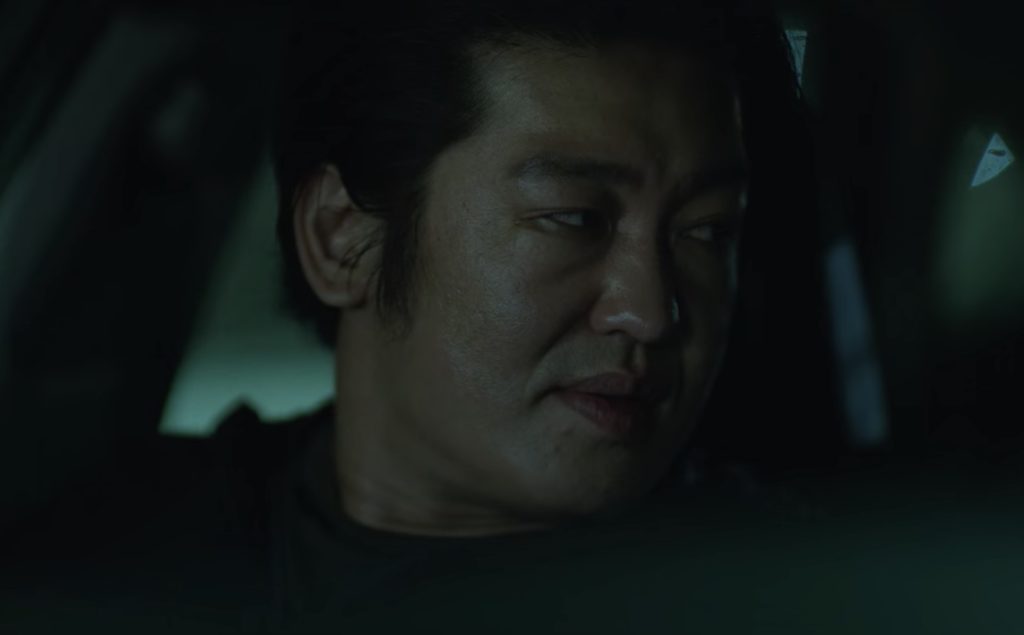
Character: Jang Deok-su
The most obnoxious villain in Squid Game is Jang Deok-su, a Filipino gang member who embraces a radically brutal Darwinian mentality. For him, strength is might, and as viewers, we hate him because his crass and violent ways are deeply offensive but also deeply effective. This odd paradox —that which makes him reprehensible also makes him the game’s best player — makes for riveting streaming television. Why? Because it points to a real tension in human nature. Do nice guys finish last? Once you crack society’s superficial facade, does violence really dictate everything?
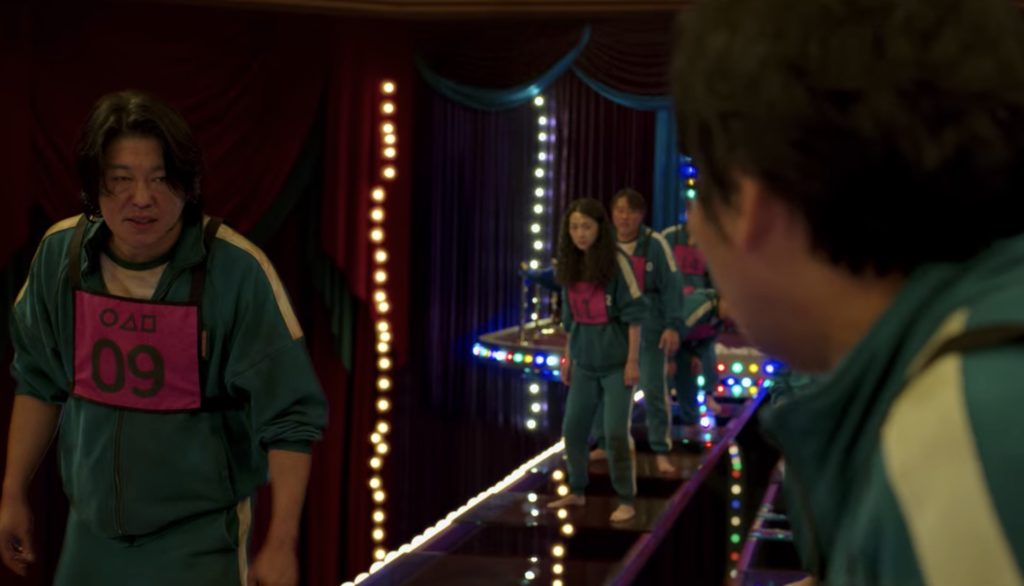
The answer is complicated. Violence is the most obvious way toward domination and victory. However obvious it might be, it does not mean it’s practical, at least in the human kingdom. Humans are too complex, too social for all of life to be reduced to an animalistic fight, and if you rely only on the force of your fist, eventually intelligence, social dynamics, or emotional manipulation will overtake you. With Jang Deok-su, as with all iron-fist dictators, it’s not a matter of if this will happen, but when. If violence is the sole glue that holds you in power, the clock is ticking.
3. Higher purpose allows humans to be graceful even in terrible circumstances.
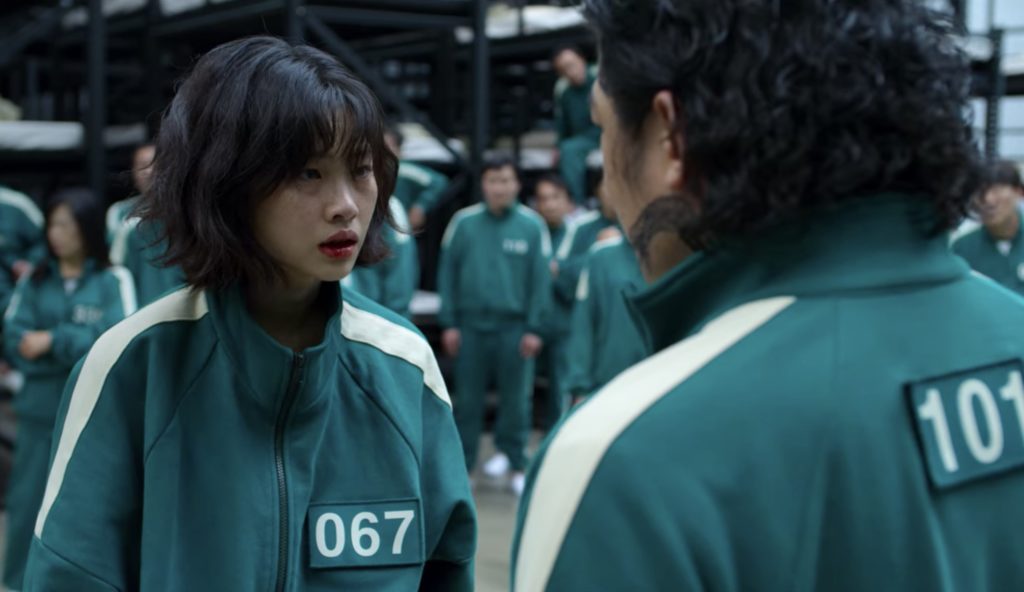
Character: Kang Sae-byeok
While the life story of Jang Deok-su seems only centered on money and power and capturing them by force and cheating, Kang Sae-byeok emerges as a counterweight. Unlike Jang Deok-su, whatever crimes or violence she inflicts have a higher justification than materialism, and violence is always a last resort.
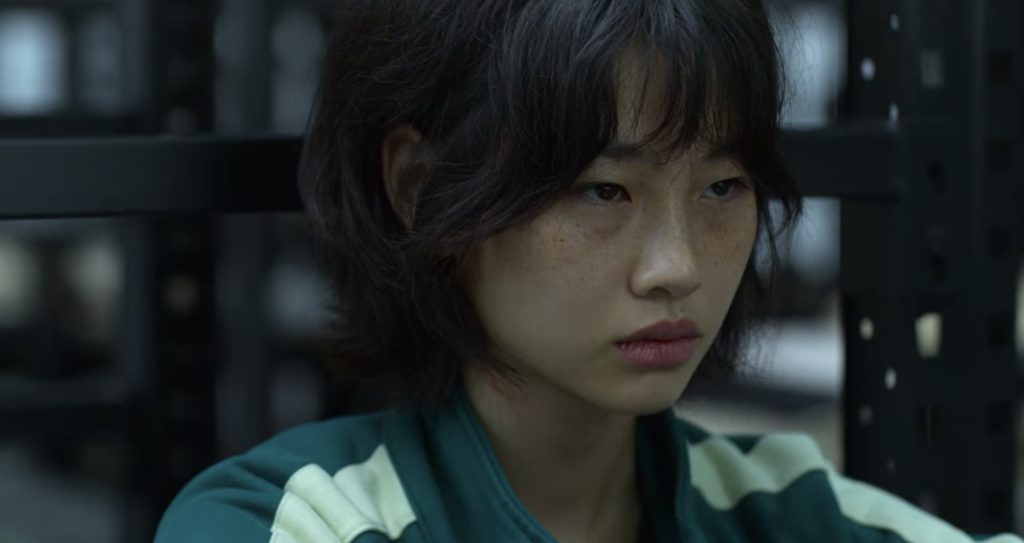
Her character is one of the most admirable. The driving force behind all her actions is to take care of her brother Cheol and get her mother out of North Korea. Her character is a reminder of Nietzsche’s philosophical insight, which was later quoted by Viktor E. Frankl in his book about surviving Auschwitz, Man’s Search for Meaning: “He who has a why to live can bear with almost any how.” Jang Deok-su can perform so well and deal with her terrible lot because she knows her goal and how to derive meaning from the suffering. The same is also true of Abdul Ali, who does the same thing for his wife and children.
4. Moderation is the way.
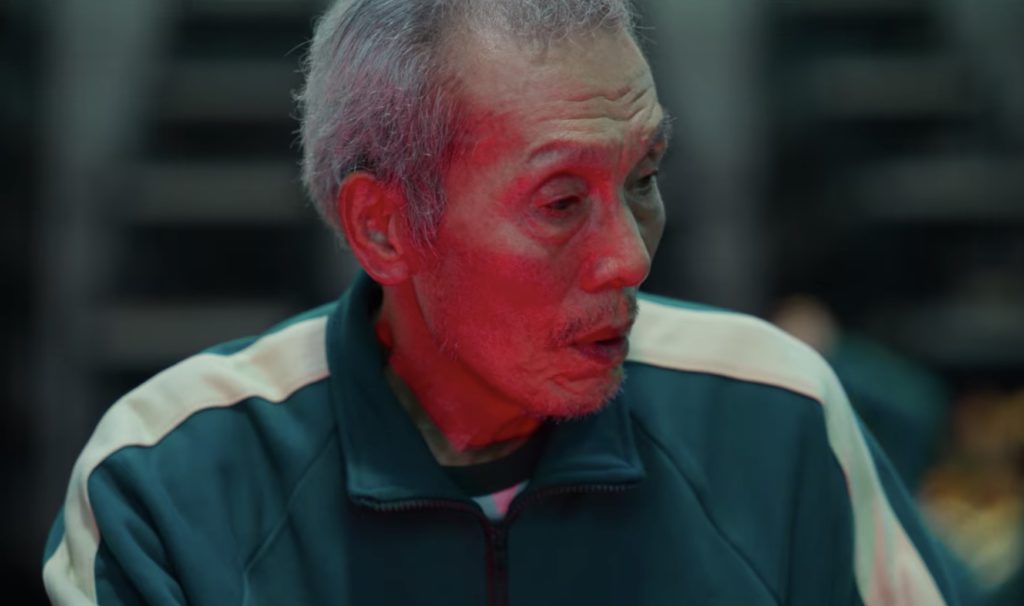
Character: Il-nam
One of the more provocative quotes is in the final episode of Squid Game, when Il-nam, on his deathbed, equates the players’ extreme poverty with the VIPs’ extreme wealth: “Do you know what people who have no money have in common with people who have too much money? Living is no fun.”
It’s a shocking insight but also reinforced by how Seong Gi-hun reacts after winning the contest. He does not change his life and goes into a catatonic state, not too far away from his past miserable life before the game.
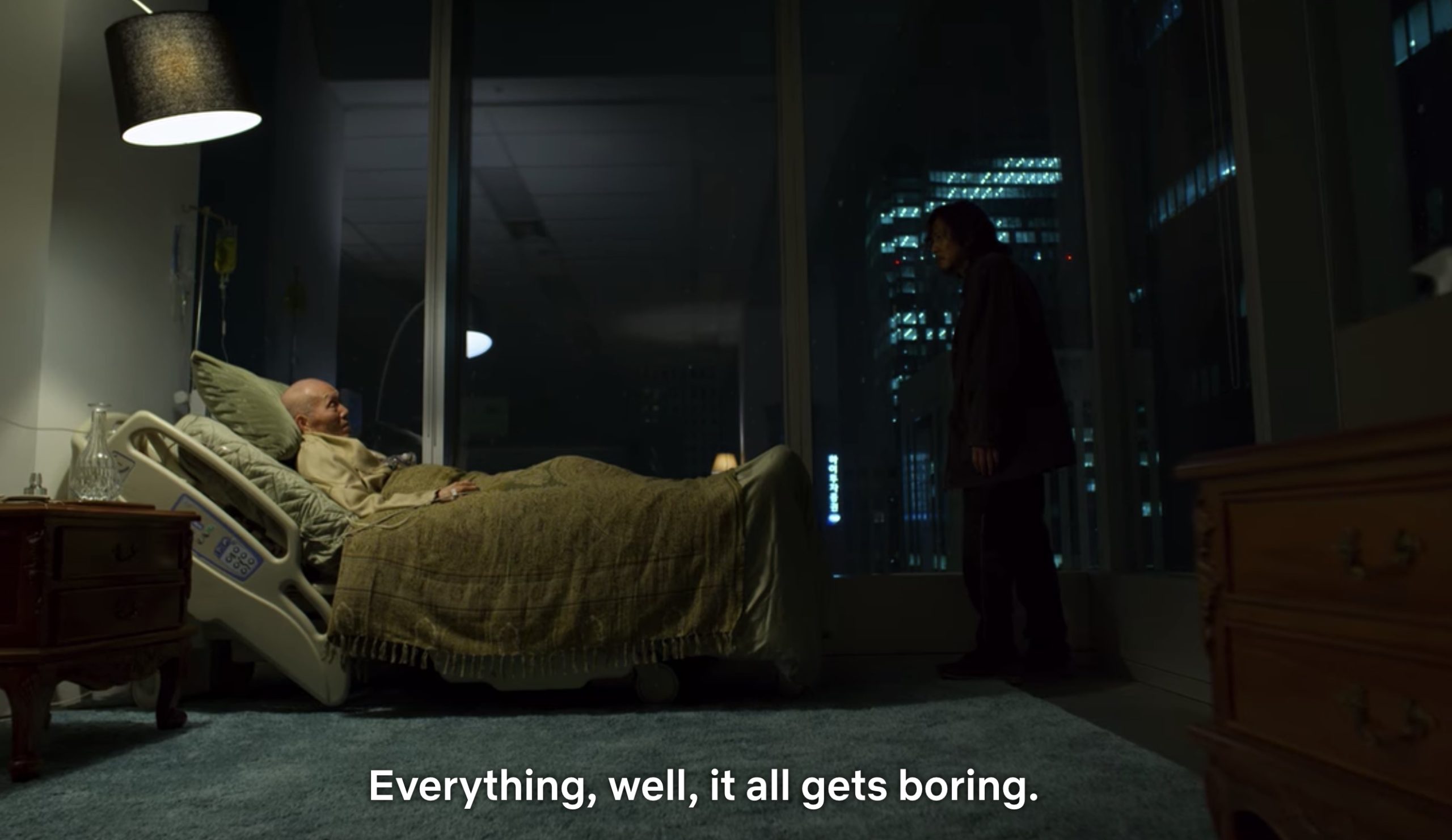
The larger philosophical principle holds water. In the extremes of poverty, life becomes a bland game with no real chance of a viable leveling-up. With extreme wealth, everything is equalized to such a degree that the game also stops and in the words of Il-nam, “Everything, well, it all gets boring.” The point? Human flourishing requires a level of moderation. Joy can’t be found in extreme circumstances.
5. Humans suck, but there is a glimmer of hope in us.
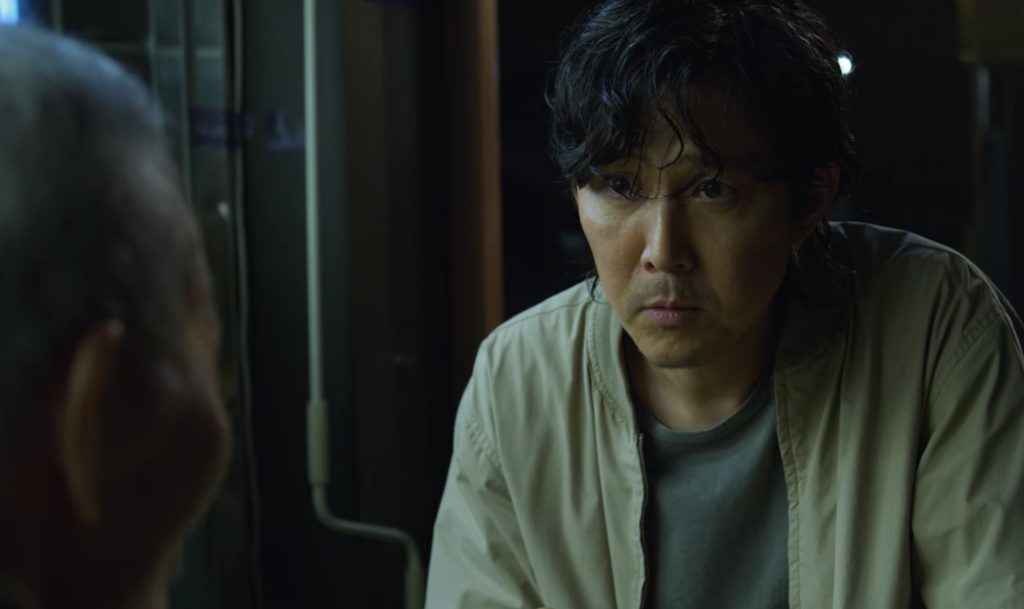
Character: Seong Gi-hun
Seong Gi-hun has the most character development of all the players. In the first episode, he’s a nasty wreck of a person stealing money from his mother and recklessly addicted to gambling. By the final episode, he’s emerged as an unexpected hero taking on the nasty force that powers the game. Add the kindness he showed to so many of the characters throughout the game, and Seong Gi-hun’s character is a reminder of the goodness all humans possess — a real and critically important aspect of our lived experience.
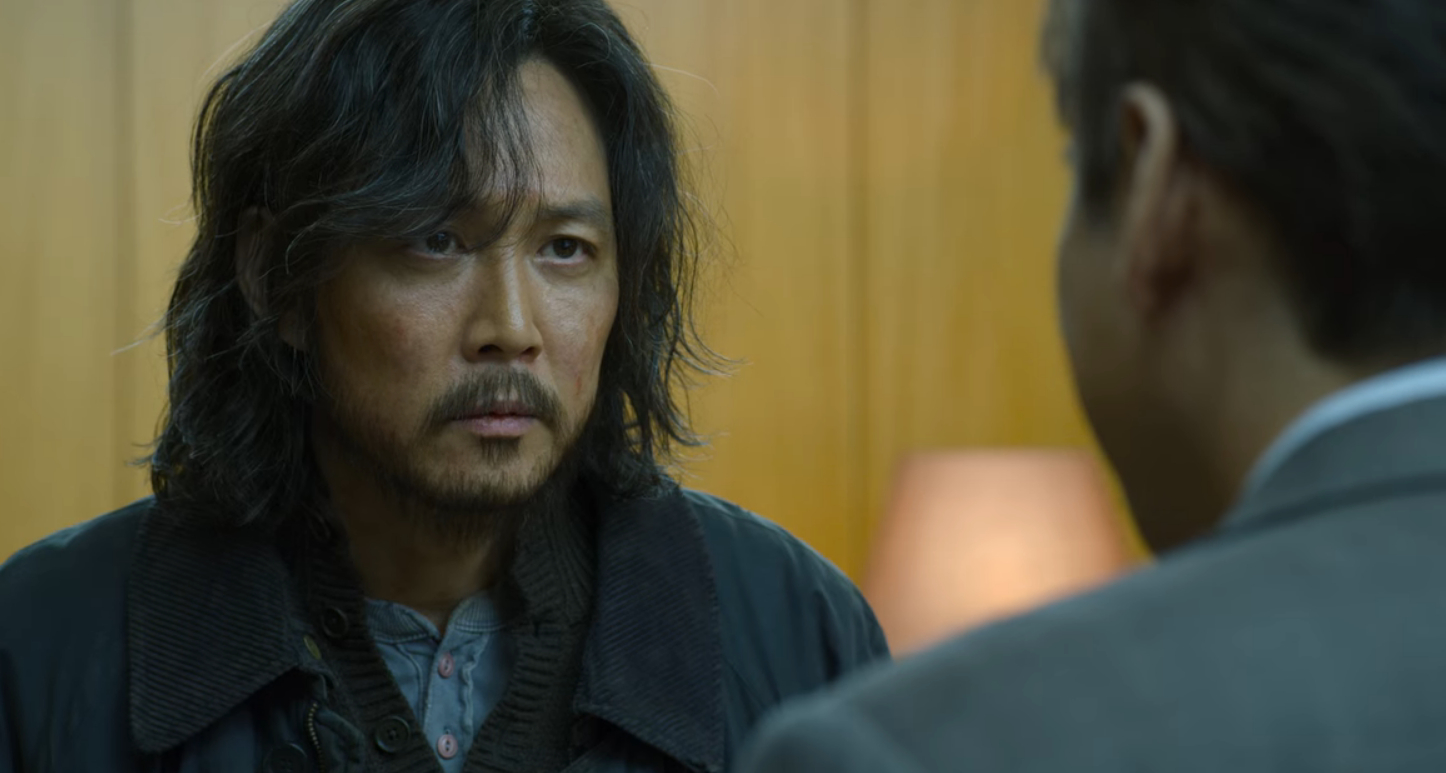
But it is only a glimmer because as admirable as it seems that Seong Gi-hun turns around to try stopping the next game, the question must be asked: Is he doing it because it’s the right thing to do, or because he’s still addicted to games of chance?
